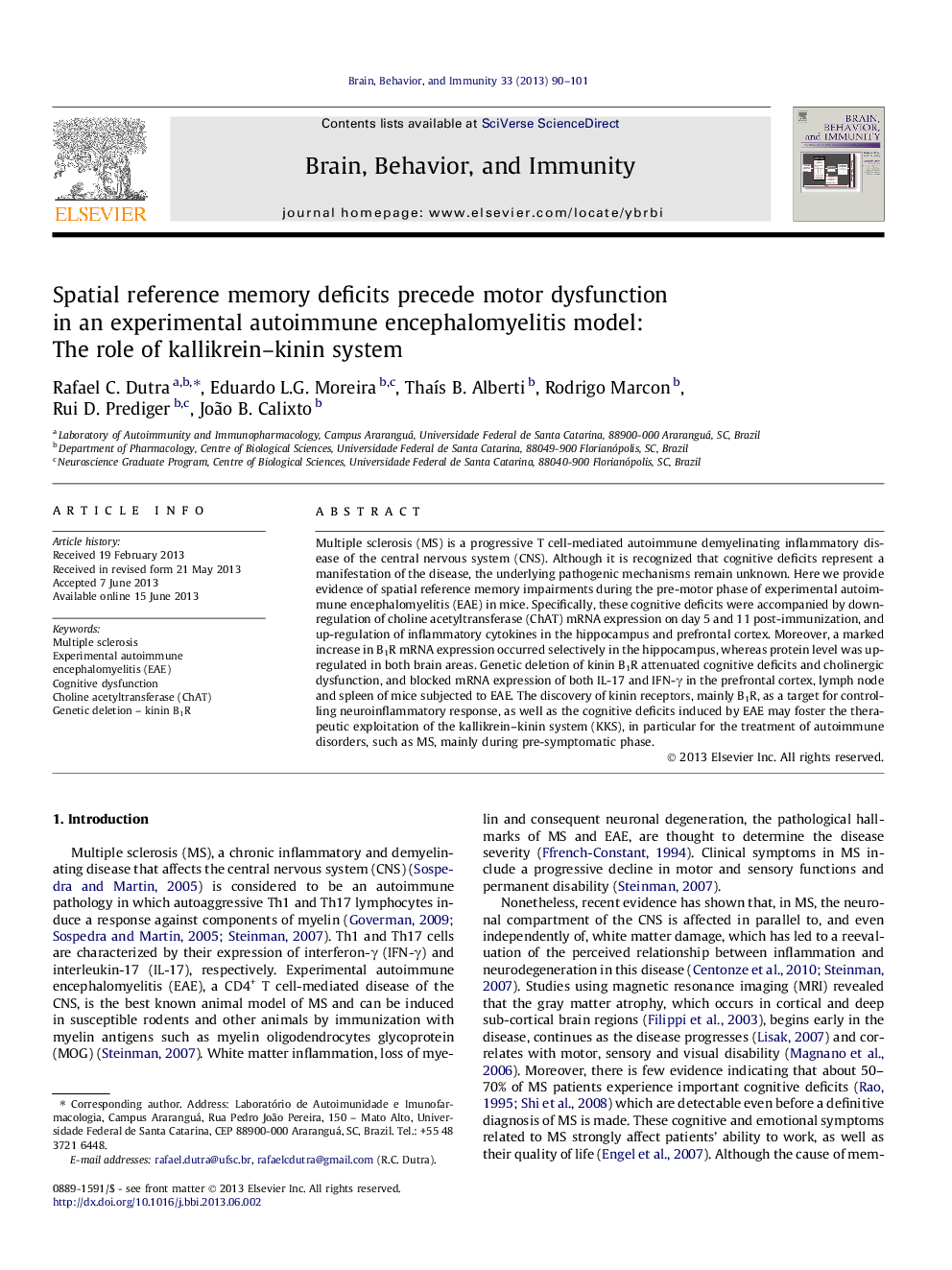| Article ID | Journal | Published Year | Pages | File Type |
|---|---|---|---|---|
| 7281932 | Brain, Behavior, and Immunity | 2013 | 12 Pages |
Abstract
Multiple sclerosis (MS) is a progressive T cell-mediated autoimmune demyelinating inflammatory disease of the central nervous system (CNS). Although it is recognized that cognitive deficits represent a manifestation of the disease, the underlying pathogenic mechanisms remain unknown. Here we provide evidence of spatial reference memory impairments during the pre-motor phase of experimental autoimmune encephalomyelitis (EAE) in mice. Specifically, these cognitive deficits were accompanied by down-regulation of choline acetyltransferase (ChAT) mRNA expression on day 5 and 11 post-immunization, and up-regulation of inflammatory cytokines in the hippocampus and prefrontal cortex. Moreover, a marked increase in B1R mRNA expression occurred selectively in the hippocampus, whereas protein level was up-regulated in both brain areas. Genetic deletion of kinin B1R attenuated cognitive deficits and cholinergic dysfunction, and blocked mRNA expression of both IL-17 and IFN-γ in the prefrontal cortex, lymph node and spleen of mice subjected to EAE. The discovery of kinin receptors, mainly B1R, as a target for controlling neuroinflammatory response, as well as the cognitive deficits induced by EAE may foster the therapeutic exploitation of the kallikrein-kinin system (KKS), in particular for the treatment of autoimmune disorders, such as MS, mainly during pre-symptomatic phase.
Keywords
Related Topics
Life Sciences
Immunology and Microbiology
Immunology
Authors
Rafael C. Dutra, Eduardo L.G. Moreira, ThaÃs B. Alberti, Rodrigo Marcon, Rui D. Prediger, João B. Calixto,
